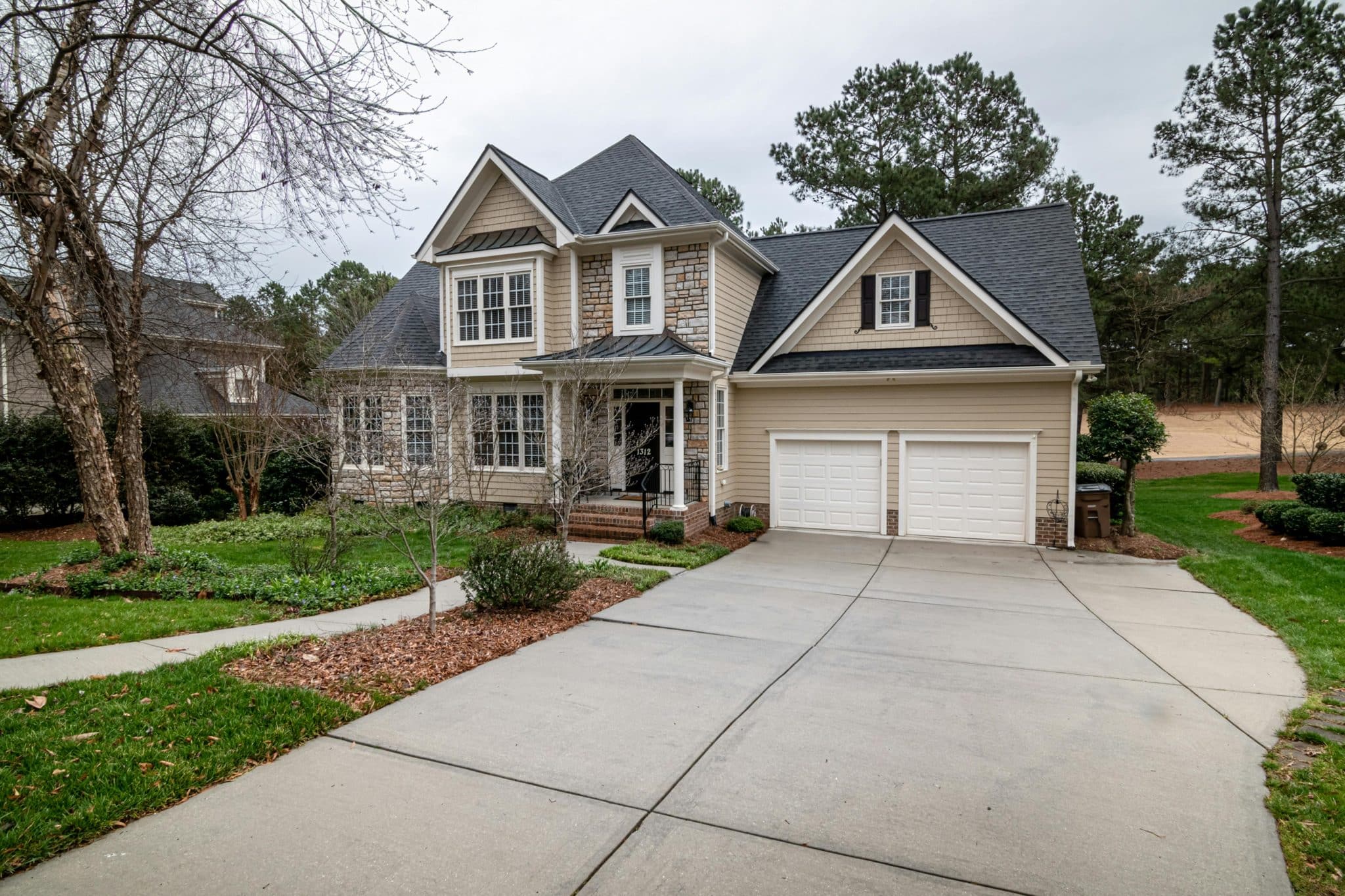How to Estimate the Value of My Property Without Overpricing
Accurately estimating property value represents one of the most challenging yet crucial aspects of successful property ownership and selling. The delicate balance between maximising financial returns and ensuring realistic market positioning can determine whether properties sell quickly at optimal prices or languish on the market whilst values potentially decline.
Overpricing creates a cascade of negative consequences including extended marketing periods, price reductions that signal desperation, and ultimate sale prices that often fall below what realistic initial pricing might have achieved.
Understanding how to assess property value objectively requires combining multiple research methods, market analysis techniques, and professional insights whilst avoiding the emotional attachments and optimistic assumptions that frequently lead to overpricing mistakes.
Successful property valuation involves systematic approaches that consider comparable sales, current market conditions, property-specific factors, and realistic buyer expectations rather than wishful thinking about exceptional circumstances or unique features that may not translate into market premiums. Learning to accurately evaluate the value of my property enables informed decisions about pricing, improvements, and timing that maximise both financial outcomes and marketing success.
Research Comparable Properties with Precision
Effective property valuation begins with comprehensive analysis of recently sold properties that match your home’s characteristics as closely as possible. Focus on properties within a half-mile radius that have sold within the past six months, as older sales data may not reflect current market conditions or buyer preferences that influence pricing decisions.
Identify properties with matching key characteristics including number of bedrooms, bathrooms, property type, and approximate age. However, extend analysis beyond basic specifications to consider factors like garden size, parking arrangements, condition standards, and local amenities that significantly influence buyer appeal and achieved prices.
Use multiple property portals and databases to gather comprehensive sales data, noting that different platforms may show varying information about completed transactions. Cross-reference data from Rightmove, Zoopla, and Land Registry records to ensure accuracy whilst identifying any discrepancies that might affect analysis reliability.
Pay particular attention to properties that failed to sell at initial asking prices and subsequently achieved lower sale prices following reductions. These examples provide valuable insights into market resistance levels and pricing boundaries that help establish realistic value expectations for similar properties.
Document seasonal variations in sale prices and marketing times, as these patterns can significantly affect optimal pricing strategies. Properties sold during peak spring and summer periods often achieve higher prices than those sold during quieter winter months, requiring timing considerations in valuation assessments.
Analyse Current Market Conditions and Trends
Local market dynamics significantly influence property values and require careful analysis to understand current buyer behaviour, demand levels, and price trends that affect individual property valuations. Study inventory levels in your area to determine whether supply and demand conditions favour buyers or sellers.
Monitor average days on market for properties similar to yours, as extended marketing periods often indicate overpricing relative to current market expectations. Properties selling quickly may suggest strong demand that supports higher valuations, whilst those requiring extended marketing often indicate pricing above market tolerance levels.
Examine price reduction patterns in your local market to understand how frequently properties require adjustments and the typical magnitude of these reductions. This analysis helps establish realistic initial pricing that avoids the negative market signals associated with visible price cuts.
Consider broader economic factors affecting property markets including interest rates, employment levels, and consumer confidence that influence buyer purchasing power and willingness to commit to property purchases at various price levels.
Research planned local developments, infrastructure projects, or economic changes that might affect future property values and current buyer perceptions. Positive developments often support premium pricing whilst negative factors may require more conservative valuation approaches.
Evaluate Property-Specific Value Factors
Conduct honest assessments of your property’s condition, features, and improvements compared to recently sold comparable properties. Focus on factors that genuinely add value rather than personal preferences that may not translate into market premiums.
Assess the quality and impact of recent improvements including kitchen upgrades, bathroom renovations, energy efficiency measures, and decorative condition. Consider whether these improvements match local market expectations and buyer preferences rather than simply representing personal investment amounts.
Evaluate unique features objectively, considering whether characteristics you value highly will appeal to typical buyers in your area. Period features, unusual layouts, or distinctive architectural elements may appeal to some buyers whilst limiting appeal to others, requiring balanced consideration in pricing decisions.
Consider location-specific factors including proximity to schools, transport links, amenities, and any negative influences like busy roads, industrial areas, or other environmental factors that might affect buyer appeal and achievable prices.
Examine garden size, orientation, privacy levels, and outdoor space quality compared to comparable properties, as these factors increasingly influence buyer decisions and pricing in many markets.
Use Professional Valuation Tools and Resources
Online valuation tools provide useful starting points for property value estimation but require careful interpretation and cross-referencing with other analysis methods. Use multiple automated valuation models whilst understanding their limitations and potential inaccuracies.
Estate agent market appraisals offer professional insights into current market conditions and realistic pricing expectations. Obtain valuations from multiple agents to identify consensus ranges whilst understanding that some agents may provide optimistic valuations to secure business.
Professional surveyors and chartered valuers provide independent assessments that consider detailed property analysis, local market knowledge, and professional standards that ensure objective, defensible valuations. These services cost more but provide higher accuracy and reliability.
Consider mortgage lender valuations for similar properties, as these conservative assessments reflect the values that support actual lending decisions rather than optimistic marketing prices that may not achieve successful sales.
Understanding Market Psychology and Buyer Behaviour
Buyer perception of value significantly influences achievable prices and requires understanding of psychological factors that affect purchasing decisions. Properties priced slightly below obvious price thresholds often attract more attention than those priced marginally above psychological barriers.
Consider the impact of round numbers and price positioning within search ranges that buyers typically use when filtering online property searches. Properties priced at £399,950 may attract more viewings than those at £405,000 despite minimal actual price differences.
Understand that buyers increasingly research property values independently and arrive at viewings with predetermined expectations about realistic pricing based on their own market analysis and comparable property research.
Factor in negotiation expectations, as many buyers expect to achieve discounts from asking prices regardless of initial pricing levels. Consider whether your pricing strategy allows for negotiation whilst achieving acceptable final prices.
Avoiding Common Overpricing Mistakes
Emotional attachment to properties frequently leads to overvaluation based on personal memories, renovation costs, or unique features that may not translate into market value. Separate emotional value from market reality when establishing pricing expectations.
Avoid basing valuations primarily on property portal estimates without supporting analysis, as these automated tools often lack accuracy and current market understanding that affects realistic pricing decisions.
Don’t assume that exceptional properties justify significant price premiums without market evidence supporting such positioning. Unique features may limit rather than expand buyer appeal depending on local market preferences and demographics.
Resist the temptation to price optimistically hoping to secure exceptional offers, as overpricing typically results in extended marketing periods and ultimate prices below what realistic initial pricing might have achieved.
Strategic Pricing for Optimal Outcomes
Consider pricing strategies that balance maximum value achievement with realistic market positioning. Competitive pricing often generates multiple interested parties that can create bidding situations resulting in optimal final prices.
Factor in market timing and seasonal considerations when establishing pricing strategies, as optimal timing can support higher valuations whilst poor timing may require more conservative approaches.
Plan for potential market changes during marketing periods by establishing pricing that remains competitive even if market conditions soften slightly during the selling process.
Understanding these comprehensive approaches to property valuation enables informed pricing decisions that optimise both marketing success and financial outcomes whilst avoiding the costly mistakes associated with overpricing that frequently compromise selling strategies and ultimate results.
How to Estimate the Value of My Property Without Overpricing
Accurately estimating property value represents one of the most challenging yet crucial aspects of successful property ownership and selling. The delicate balance between maximising financial returns and ensuring realistic market positioning can determine whether properties sell quickly at optimal prices or languish on the market whilst values potentially decline.
Overpricing creates a cascade of negative consequences including extended marketing periods, price reductions that signal desperation, and ultimate sale prices that often fall below what realistic initial pricing might have achieved.
Understanding how to assess property value objectively requires combining multiple research methods, market analysis techniques, and professional insights whilst avoiding the emotional attachments and optimistic assumptions that frequently lead to overpricing mistakes.
Successful property valuation involves systematic approaches that consider comparable sales, current market conditions, property-specific factors, and realistic buyer expectations rather than wishful thinking about exceptional circumstances or unique features that may not translate into market premiums. Learning to accurately evaluate the value of my property enables informed decisions about pricing, improvements, and timing that maximise both financial outcomes and marketing success.
Research Comparable Properties with Precision
Effective property valuation begins with comprehensive analysis of recently sold properties that match your home’s characteristics as closely as possible. Focus on properties within a half-mile radius that have sold within the past six months, as older sales data may not reflect current market conditions or buyer preferences that influence pricing decisions.
Identify properties with matching key characteristics including number of bedrooms, bathrooms, property type, and approximate age. However, extend analysis beyond basic specifications to consider factors like garden size, parking arrangements, condition standards, and local amenities that significantly influence buyer appeal and achieved prices.
Use multiple property portals and databases to gather comprehensive sales data, noting that different platforms may show varying information about completed transactions. Cross-reference data from Rightmove, Zoopla, and Land Registry records to ensure accuracy whilst identifying any discrepancies that might affect analysis reliability.
Pay particular attention to properties that failed to sell at initial asking prices and subsequently achieved lower sale prices following reductions. These examples provide valuable insights into market resistance levels and pricing boundaries that help establish realistic value expectations for similar properties.
Document seasonal variations in sale prices and marketing times, as these patterns can significantly affect optimal pricing strategies. Properties sold during peak spring and summer periods often achieve higher prices than those sold during quieter winter months, requiring timing considerations in valuation assessments.
Analyse Current Market Conditions and Trends
Local market dynamics significantly influence property values and require careful analysis to understand current buyer behaviour, demand levels, and price trends that affect individual property valuations. Study inventory levels in your area to determine whether supply and demand conditions favour buyers or sellers.
Monitor average days on market for properties similar to yours, as extended marketing periods often indicate overpricing relative to current market expectations. Properties selling quickly may suggest strong demand that supports higher valuations, whilst those requiring extended marketing often indicate pricing above market tolerance levels.
Examine price reduction patterns in your local market to understand how frequently properties require adjustments and the typical magnitude of these reductions. This analysis helps establish realistic initial pricing that avoids the negative market signals associated with visible price cuts.
Consider broader economic factors affecting property markets including interest rates, employment levels, and consumer confidence that influence buyer purchasing power and willingness to commit to property purchases at various price levels.
Research planned local developments, infrastructure projects, or economic changes that might affect future property values and current buyer perceptions. Positive developments often support premium pricing whilst negative factors may require more conservative valuation approaches.
Evaluate Property-Specific Value Factors
Conduct honest assessments of your property’s condition, features, and improvements compared to recently sold comparable properties. Focus on factors that genuinely add value rather than personal preferences that may not translate into market premiums.
Assess the quality and impact of recent improvements including kitchen upgrades, bathroom renovations, energy efficiency measures, and decorative condition. Consider whether these improvements match local market expectations and buyer preferences rather than simply representing personal investment amounts.
Evaluate unique features objectively, considering whether characteristics you value highly will appeal to typical buyers in your area. Period features, unusual layouts, or distinctive architectural elements may appeal to some buyers whilst limiting appeal to others, requiring balanced consideration in pricing decisions.
Consider location-specific factors including proximity to schools, transport links, amenities, and any negative influences like busy roads, industrial areas, or other environmental factors that might affect buyer appeal and achievable prices.
Examine garden size, orientation, privacy levels, and outdoor space quality compared to comparable properties, as these factors increasingly influence buyer decisions and pricing in many markets.
Use Professional Valuation Tools and Resources
Online valuation tools provide useful starting points for property value estimation but require careful interpretation and cross-referencing with other analysis methods. Use multiple automated valuation models whilst understanding their limitations and potential inaccuracies.
Estate agent market appraisals offer professional insights into current market conditions and realistic pricing expectations. Obtain valuations from multiple agents to identify consensus ranges whilst understanding that some agents may provide optimistic valuations to secure business.
Professional surveyors and chartered valuers provide independent assessments that consider detailed property analysis, local market knowledge, and professional standards that ensure objective, defensible valuations. These services cost more but provide higher accuracy and reliability.
Consider mortgage lender valuations for similar properties, as these conservative assessments reflect the values that support actual lending decisions rather than optimistic marketing prices that may not achieve successful sales.
Understanding Market Psychology and Buyer Behaviour
Buyer perception of value significantly influences achievable prices and requires understanding of psychological factors that affect purchasing decisions. Properties priced slightly below obvious price thresholds often attract more attention than those priced marginally above psychological barriers.
Consider the impact of round numbers and price positioning within search ranges that buyers typically use when filtering online property searches. Properties priced at £399,950 may attract more viewings than those at £405,000 despite minimal actual price differences.
Understand that buyers increasingly research property values independently and arrive at viewings with predetermined expectations about realistic pricing based on their own market analysis and comparable property research.
Factor in negotiation expectations, as many buyers expect to achieve discounts from asking prices regardless of initial pricing levels. Consider whether your pricing strategy allows for negotiation whilst achieving acceptable final prices.
Avoiding Common Overpricing Mistakes
Emotional attachment to properties frequently leads to overvaluation based on personal memories, renovation costs, or unique features that may not translate into market value. Separate emotional value from market reality when establishing pricing expectations.
Avoid basing valuations primarily on property portal estimates without supporting analysis, as these automated tools often lack accuracy and current market understanding that affects realistic pricing decisions.
Don’t assume that exceptional properties justify significant price premiums without market evidence supporting such positioning. Unique features may limit rather than expand buyer appeal depending on local market preferences and demographics.
Resist the temptation to price optimistically hoping to secure exceptional offers, as overpricing typically results in extended marketing periods and ultimate prices below what realistic initial pricing might have achieved.
Strategic Pricing for Optimal Outcomes
Consider pricing strategies that balance maximum value achievement with realistic market positioning. Competitive pricing often generates multiple interested parties that can create bidding situations resulting in optimal final prices.
Factor in market timing and seasonal considerations when establishing pricing strategies, as optimal timing can support higher valuations whilst poor timing may require more conservative approaches.
Plan for potential market changes during marketing periods by establishing pricing that remains competitive even if market conditions soften slightly during the selling process.
Understanding these comprehensive approaches to property valuation enables informed pricing decisions that optimise both marketing success and financial outcomes whilst avoiding the costly mistakes associated with overpricing that frequently compromise selling strategies and ultimate results.








